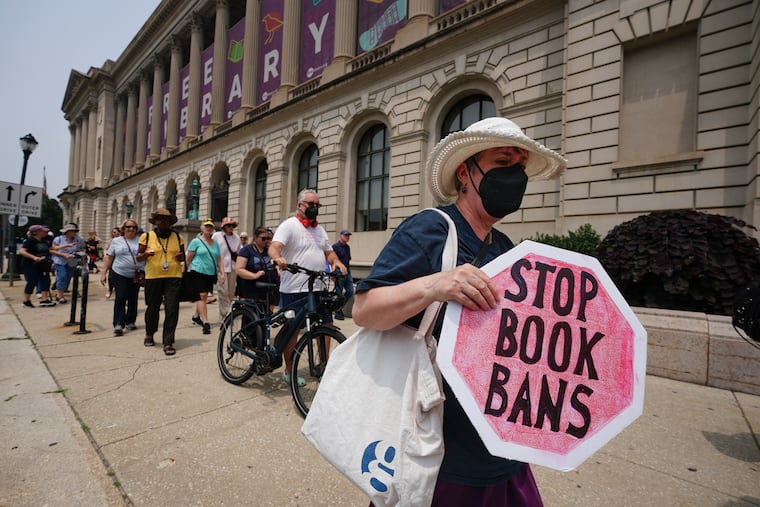Lessons for today from teacher witch hunts of the early 1950s
If we truly value America’s most embattled profession, our teachers require public support.

Over the last three years, state-level legislation designed to restrict the use of books and curricula that would give voice and representation to LGBTQ people — and induce teachers to obscure or ignore the history of racism — has expanded. Even though most teachers would prefer that politicians stay out of their classroom decision-making, interest groups put pressure on lawmakers to limit what teachers can discuss with their students.
What about in Philadelphia? Other states have “educational gag orders,” or laws that restrict the topics teachers can cover in the classroom. Although there are none of these laws so far in Pennsylvania, school districts have imposed hundreds of book bans, among the most of any state in the country. Philadelphia teachers have been the target of private groups like Moms for Liberty and high-profile individuals like conservative activist Christopher Rufo who seek to prevent teachers from taking up controversial topics in the classroom.
The present wave of anti-teacher public policies and private initiatives is a chilling reminder of past injustices.
Seventy years ago this month, the House Committee on Un-American Activities visited Philadelphia, specifically to interrogate teachers. For three days at the courthouse on Ninth and Chestnut Streets, the committee interrogated 20 public school teachers about their politics, as television channels and radio stations broadcast the hearings across the city.
The committee’s professed goal was to learn more about the operation and intent of the Communist Party in Philadelphia. It also sought to address a long-standing fear: that Communists had infiltrated the nation’s public schools and were spreading subversive propaganda. Shortly after the hearings, the Board of Education suspended most of these teachers, almost all of whom were subsequently fired.
The history of the House Committee on Un-American Activities’ interrogation of Philadelphia teachers is full of lessons for today, but the one most pertinent to the present moment is how teachers routinely become targets of political hysteria.
Targeting teachers has consequences. One of the many crises presently afflicting Philadelphia’s schools is a teacher shortage. There are many reasons for teachers leaving the profession: poor working conditions, asbestos-contaminated buildings, lack of resources, low pay, emotional burnout. On top of all these well-documented stressors, the so-called culture wars continue to percolate.
According to one study, 31% of school district leaders across the country “reported verbal or written threats against educators about politically controversial topics” during the 2021-22 school year. Roughly half of district leaders reported that political polarization “was interfering with their ability to educate students,” with leaders of districts serving predominantly white students being more likely to report such interference.
Similarly, the anti-Communist witch-hunting of the early 1950s was part of a longer trajectory of repression in the United States against teachers who were suspected of unorthodox politics.
Seventy years ago, the victims were teachers with local reputations of fighting to make the public schools better serve Philadelphia’s children. Indeed, almost all of the Philadelphia teachers who lost their jobs to the Red Scare had been members of a teachers’ union that, during the 1930s, fought for school desegregation, more funding for city schools, and Pennsylvania’s first teacher tenure law.
After questioning from the House Committee on Un-American Activities, several teachers sued the Board of Education in an effort to get their jobs back. The case of Philadelphia English teacher Herman Beilan went as far as the U.S. Supreme Court, which ruled in favor of the board in 1958.
On the 70th anniversary of the House Committee on Un-American Activities’ visit to Philadelphia, let us remember that, if we truly value America’s most embattled profession, our teachers require public support.
What those interrogated teachers fought for on the eve of their dismissals still remains elusive in Philadelphia: a well-funded public school system that equitably serves students of all incomes, races, and genders.
Nicholas Toloudis is a political science professor at the College of New Jersey who is working on a book about the Philadelphia teachers’ union.